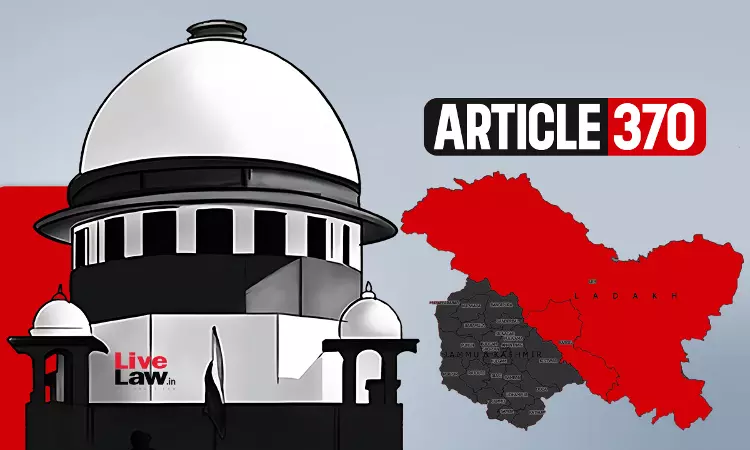Kashmiri Pandit Body Supports Abrogation Of J&K Special Status; Says Article 370 Was Discriminatory
Padmakshi Sharma
27 July 2023 7:40 PM IST

Next Story
27 July 2023 7:40 PM IST
In yet another development in the case pertaining to the abrogation of Article 370, which the Supreme Court is set to start hearing from August 2, 2023, certain intervenors, advocating for the rights of Kashmiri Pandits, have filed intervention applications in support of the central government's decision to abrogate the special status of Jammu and Kashmir. Additionally, these applications...
